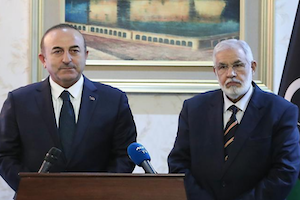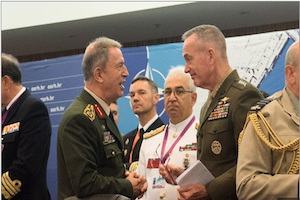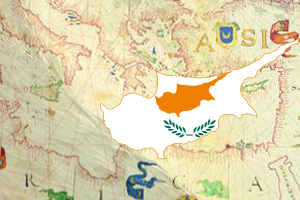Turkey Enters Libyan Escalation Spiral at Great Risk
By Micha’el Tanchum
December 30, 2019
Turkey upended the Eastern Mediterranean's strategic equation with its late November 2019 signing of maritime boundary and military cooperation agreements with the Tripoli-based Government of National Accord in war-divided Libya. By defining maritime borders with the internationally recognized administration in Tripoli, Ankara ostensibly has broken its regional isolation and gained greater legal standing to challenge the boundaries Greece established with Cyprus and Egypt upon which the current arrangements for Eastern Mediterranean natural gas development depend. While previously compartmentalized, Turkey's formalization of its commitment to Tripoli has interlinked an already tense maritime stand-off in the Eastern Mediterranean to a new escalation spiral in the Libyan Civil War in which Turkey's rivals possess escalation dominance over Turkey.

A Dangerous Policy of Turkish Containment in the Eastern Mediterranean
By Micha’el Tanchum
July 3, 2019
Turkey's provocative action of sending two drillships into Cypriot waters to explore for natural gas is a response to a grander provocation coming from the Republic of Cyprus, Greece, Egypt, and Israel to exclude Turkey from the marketing of Eastern Mediterranean gas. This common front, composed of interlinked security partnerships among the region's current natural gas producers and Greece, has been increasingly supported by the United States, France, and Italy, each of whom has significant economic investments in Eastern Mediterranean gas. For Ankara, its NATO allies' support of this common front is tantamount to a policy of soft containment against Turkey. The hardening of this containment through substantial naval support to the Republic of Cyprus as a response to Turkey's actions could send the Eastern Mediterranean into a dangerous escalation spiral that could permanently alter Turkey's relationship with NATO.

The Gaza-Ankara-Jerusalem Triangle: How Israel and Turkey Made Up on Gaza Above the Heads of Palestinians and Egyptians
By Nathan Shachar
July 8, 2016
Whatever dividends the fresh Turkish-Israeli rapprochement will bring, it reveals something fundamental about the new Middle East: the number of unknown variables in this ever less predictable environment is steadily growing, and even the most arrogant and unrepentant leaders will have to eat crow from time to time in order to salvage their national interests. Leaders who stand by their words and their principles will be severely handicapped.
Turkey’s Alternative Gas Suppliers: Who to bet on?
By Ipek Velioglu
January 15th, 2016, The Turkey Analyst
Turkey’s decision to shoot down a Russian jet in the Syrian border led to a crisis between the two countries. Although Russia and Turkey always had divergent political agendas, they maintained a good relationship. In the last decade, thanks to the personal relationship of the leaders, Russia and Turkey created a strong economic partnership, especially in the energy field, and kept it separately from the political sphere. But this time is different: the deterioration in political relations will have a strong impact on energy cooperation. Russia slammed economic sanctions on Turkey and big investment projects are at risk. Given its dependency on Russian natural gas, Turkey is concerned about its energy security, making the quest for alternative suppliers and sources highly relevant.
Turkey Loses Ground in Cyprus
By Ozan Serdaroğlu (vol. 8, no. 13 of the Turkey Analyst)
Seven months after Cypriot president Nicos Anastasiades withdrew from the peace talks, attempts to reunify Cyprus are again underway with greater optimism following the election of Mustafa Akıncı as the new leader of Turkish Cypriots. The Greek Cypriot side continues to enlarge its diplomatic capacities and develops a new regional context where Turkey is left with fewer options. Eastern Mediterranean geopolitics together with the more assertive, independent-minded stance of Turkish Cypriots in favor of “reunification” mean that Turkey faces the most delicate stage of its engagement in Cyprus since 1974.





